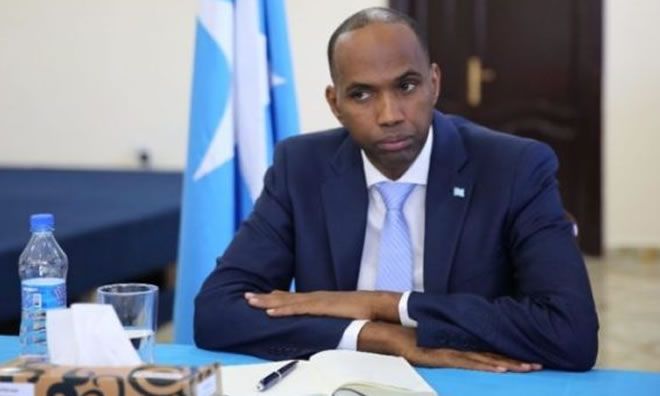Muuse Yuusuf
Tuesday, July 28, 2020

The Lower House’s decision on 25 July to sack Prime Minister Kheyre reeks of politics of sacrificial lamb and the notorious factionalism in Somali politicians’ culture.
In mythical stories mainly religious, a lamb is sacrificed to please Gods or to avert their wrath. There were examples in historical mythology. For example, a lamb was sacrificed to save Ismail after Prophet Abraham had offered his son to please his God.
In political history, there are plenty of examples in which kings, presidents, prime minister and heads of states had been removed from power to please the will of other powerful stakeholders, groups or parties with vested interests.
The decision to remove Prime Minster Kheyre falls within the previous categories. The Selected Members of the Parliament (SMPs)-as they were selected and not elected directly by the people-dismissed the prime minister without following a fair and proper constitutional procedure. For example, they failed to give SMPs plenty of time to discuss any motion of no-confidence in the prime minister and his government. They also failed to offer the prime minister an opportunity to defend or fend for himself as fairness would require.
The irony of the situation is that the prime minister was sacked while he was still in Dhuusa Mareeb after the much talked reconciliation conference between leaders of the regional governments and the federal government had concluded. And it was agreed to meet again in August to discuss a way forward for the impending elections.
In the current development, it seems though the infamous factionalism in Somali political elites’ culture took over the situation. Under this factionalism based on parochial interests, politicians create or dissolve factions or groups for economic and political reasons. Motivated by Somali politicians’ cut-throat politics, backstabbing, betrayal and disloyalty are common features. This has been part of Somali political life since 1960s when 60 political parties were formed. Factionalism was suppressed during the military regime, but it got worse from late 1980s and 1990s when multiple layers of factions e.g. SNMS, USC, SSDF were created. Since the Djibouti Reconciliation Conference in 2000 known as the Arte process, factionalism has been endemic as SMPs created splinter faction to pursue their parochial interests. Factions within the parliament dismissed prime ministers and speakers of parliament.
Influenced by this inherent and unhealthy political culture, a faction of 170 of SMPs withdrew their confidence in the prime minister. Considering the speedy manner in which the decision was taken, it could be concluded that SMPs had self-preservation and political survival in their hearts because their time in parliament is up and they will have to face de-selection or re-selection.
Therefore, it could be argued that SMPs main motive was to plunge the country in political turmoil so that the forthcoming election will have to be postponed in the hope that their term will be extended for a few years.
Also, President Formajo’s swift decision to accept SMPs decision without defending his prime minister may indicate Villa Somalia’s hand in the motion. This is because postponing the forthcoming election would probably ensure his political survival for a few years.
As they would not sack themselves and they are the strongest stakeholders in this scenario, the prime minster had to be sacrificed to please “Gods”, in this case to protect SMPs own political survival and jobs.
The poor prime minister found himself torn apart between two hard rocks – a president who seems to have abandoned him and SMPs adamant to cling to power.
Muuse Yuusuf
[email protected]